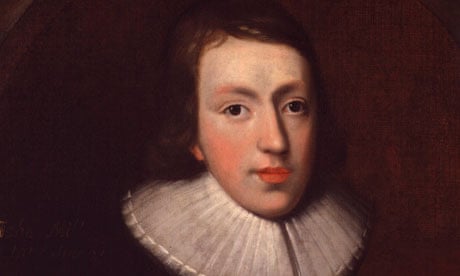I am in genuine awe of John Basinger, who has learned the whole of Paradise Lost by heart – all 12 books, 10,565 lines and 60,000-odd words. He completed his feat in 2001 and can still recite it today; his achievement is so astonishing that the journal Memory recently conducted a study on him. Testing Basinger by giving him two lines from the beginning or middle of each book, the academics found he could recall the next 10 lines each time. He achieved it, they believe, by "deeply analysing the poem's structure and meaning over lengthy repetitions". They suggest that "exceptional memorisers such as [Basinger] are made, not born, and that cognitive expertise can be demonstrated even in later adulthood".
As well as awe, I'll admit to feeling a little jealous of Basinger, because I hardly know any poetry by heart. When my mum was at school, it was something they were made to do, and she can recite scads and scads; I just called her to check, and she could reel off Upon Westminster Bridge, Ozymandias, Adlestrop and lots of Shakespeare. And she says her grandmother, brought up in the west of Ireland, knew hundreds of poems by heart.
It wasn't something we did at my school, though, and I do regret it. The poems I remember are few and far between and usually incomplete. From childhood, I can summon up John Masefield's Sea Fever, Eleanor Farjeon's Cats Sleep Anywhere and Irene Rutherford Mcleod's Lone Dog in their entirety. (I went through a phase when I had trouble sleeping and was told firmly that learning poems would make me drop off; lots of bits and pieces remain from this period, from most of Edward Lear's runcible spoons to less than I would like of TS Eliot's mystery cat.)
But that's not particularly impressive, is it? (Actually, scrap the question mark – it's not.) As an adult I've made even less effort to learn poetry, and all I can recite as a whole is Gerard Manley Hopkins's Spring and Fall, because I loved it so much I wanted to learn it. Apart from that, there are snippets which will dart into my head and tantalise me with wanting to remember more. Last week it was Tennyson – "I hate the dreadful hollow, behind the little wood, / Its lips in the field above are dabbled with blood-red heath" – and I had to go and track down the rest of Maud. It's far too long for a person with a brain smaller than Mr Basinger's to learn, but I'm thinking I might try and commit some sections to memory. (Did anyone else read Monica Dickens's World's End books, by the way? I always remember the teacher whirling around the classroom, arms aloft, chanting "Come into the garden, Maud".)
Before that it was EE Cummings and "a smooth round stone / as small as a world and as large as alone", which led to a rereading of Maggie and Milly and Molly and May. Now that one looks learnable ...
I know I'll never get as far as Basinger. But I am minded to address my shortcomings in this area. After all, scientists tells us that "memorisers ... are made, not born". How about you – what do you know by heart (no cheating)? And what would you recommend learning?

Comments (…)
Sign in or create your Guardian account to join the discussion